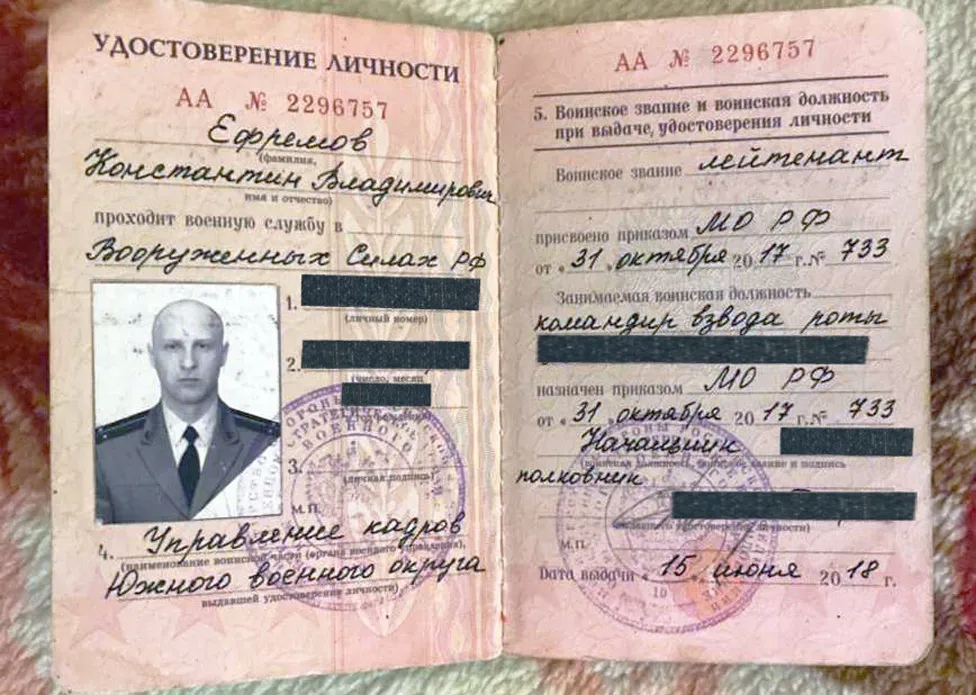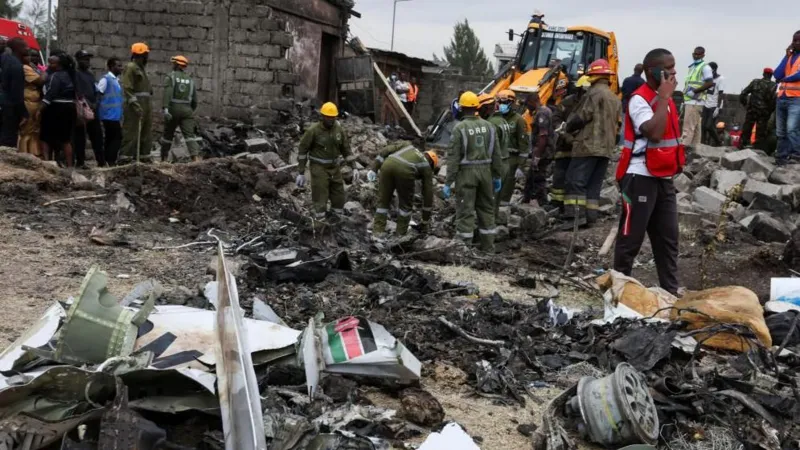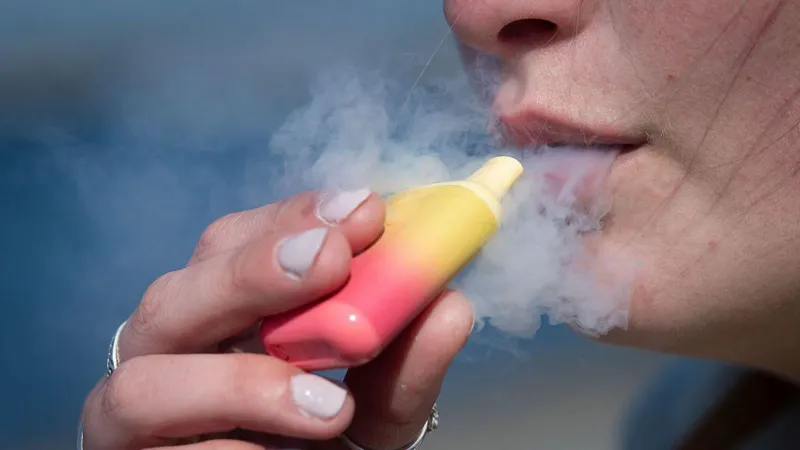Russian army officer admits: 'Our troops tortured Ukrainians'
Allegations of brutal interrogations, where Ukrainian men were shot and threatened with rape, have been made by a former Russian military officer.

Konstantin Yefremov, the most senior officer to speak openly, told the BBC in an exclusive interview Russia now sees him as a traitor and defector.
At one site in southern Ukraine, he said "the interrogations, the torture, continued for about a week".
"Every day, at night, sometimes twice a day."
Mr Yefremov tried to resign from the army numerous times - but he ended up being dismissed for refusing to return to Ukraine. He has now fled Russia.
Using photographs and military documents supplied by Mr Yefremov, the BBC has verified he was in Ukraine early in the war - in the Zaporizhzhia region, including the city of Melitopol.
This article contains graphic descriptions of torture.
Short presentational grey line
Konstantin Yefremov's face flickers into view on my computer screen and we start to talk. He is a man with a story to tell. Until recently he was a Russian army officer.
Deployed to Ukraine last year, the former senior lieutenant has agreed to tell me about the crimes he says he witnessed there - including torture and mistreatment of Ukrainian prisoners. He will talk about his comrades looting occupied areas of Ukraine, and describe brutal interrogation sessions, led by a Russian colonel, in which men were shot and threatened with rape.
On 10 February 2022, Mr Yefremov says he arrived in Crimea, the Ukrainian peninsula annexed by Russia nine years ago. He was the head of a de-mining unit of the 42nd Motorised Rifle Division - and was usually based in Chechnya, in Russia's North Caucasus. He and his men were sent to take part in "military exercises", he says.
"At the time no-one believed there would be war. Everyone thought this was only a drill. I'm sure even senior officers didn't know."
'I was scared of quitting'
Mr Yefremov recalls seeing Russian troops taping identification marks on their uniforms and painting the letter "Z" on military equipment and vehicles. Within days, "Z" had become the symbol of what the Kremlin was calling its "special military operation".
Mr Yefremov claims he wanted nothing to do with it.
"I decided to quit. I went to my commander and explained my position. He took me to a senior officer who called me a traitor and a coward.
"I left my gun, got in a taxi and drove off. I wanted to return to my base in Chechnya and resign officially. Then my comrades telephoned me with a warning.
"A colonel had promised to put me in prison for up to 10 years for desertion and he'd alerted the police."
Mr Yefremov says he called a military lawyer, who advised him to turn around.
"I realise now I should have ignored that and driven on," he says. "But I was afraid of being put in jail."
He went back to join his men.
Mr Yefremov insists he is "anti-war". He assures me he did not participate in Russia's annexation of Crimea, or fight in eastern Ukraine when war first erupted in the Donbas nine years ago.
In 2014, Russia was not only accused of orchestrating a separatist uprising there, but of sending in its own troops. Konstantin also tells me he has not taken part in Russia's military operation in Syria.
"For the last three years I had been involved in mine clearance in Chechnya, a place that had experienced two wars. I think the work I've done there has benefited people."
Looting bicycles and lawnmowers
Mr Yefremov was placed in temporary charge of a rifle platoon. On 27 February, three days after the Russian invasion, he says he and his men were ordered to move north from occupied Crimea. They headed for the city of Melitopol.
The next 10 days were spent at an airfield which had already been captured by Russian troops. He describes the looting he witnessed.
"Soldiers and officers grabbed everything they could. They climbed all over the planes and went through all the buildings. One soldier took away a lawnmower. He said proudly, 'I'll take this home and cut the grass next to our barracks.'
"Buckets, axes, bicycles, they bunged it all in their trucks. So much stuff they had to squat down to fit in the vehicles."
Mr Yefremov has sent us photographs he says he took at Melitopol air base. They show transport planes and a building on fire.
They are among a number of pictures and documents he has shared - and which we have verified - to confirm Mr Yefremov's identity, rank and his movements in Ukraine in the spring of 2022.
Online mapping tools confirmed the images of Melitopol air base.
Photo showing Melitopol air base building on fire from 1 March 2022 - and a satellite view of the site from the day before, confirming its location
For a month and a half, he and eight soldiers under his command guarded a Russian artillery unit there.
"The whole time we slept outside," he recalls. "We were so hungry we started hunting for rabbits and pheasants. One time we came across a mansion. There was a Russian fighter inside. 'We're with the 100th Brigade and we live here now,' the soldier said.
"There was so much food. The fridges were packed. There was enough food to survive a nuclear war. But the soldiers living there were catching the Japanese carp in the pond outside and eating them."
'I saw interrogation and torture'
Konstantin Yefremov's group moved to guard what he describes as a "logistics headquarters" in April - in the town of Bilmak, to the north-east of Melitopol. There, he says he witnessed interrogations and mistreatment of Ukrainian prisoners.
He recalls a day when three prisoners were brought in.
"One of them admitted to being a sniper. On hearing this, the Russian colonel lost his mind. He hit him, he pulled the Ukrainian's trousers down and asked if he was married.
"'Yes,' the prisoner replied. 'Then someone bring me a mop,' said the colonel. 'We'll turn you into a girl and send your wife the video.'"
Another time, says Mr Yefremov, the colonel asked the prisoner to name all the Ukrainian nationalists in his unit.
"The Ukrainian didn't understand the question. He replied that the soldiers were naval infantry of the Ukrainian armed forces. For that answer they knocked out some of his teeth."
The Kremlin wants Russians to believe that, in Ukraine, Russia is fighting fascists, neo-Nazis and ultra-nationalists. This false narrative serves to dehumanise Ukrainians in the eyes of the Russian public and the military.
Mr Yefremov says the Ukrainian prisoner had a blindfold on.
"The colonel put a pistol to the prisoner's forehead and said 'I'm going to count to three and then shoot you in the head.'
"He counted and then fired just to the side of his head, on both sides. The colonel started shouting at him. I said: 'Comrade colonel! He can't hear you, you've deafened him!'"
-bbc






